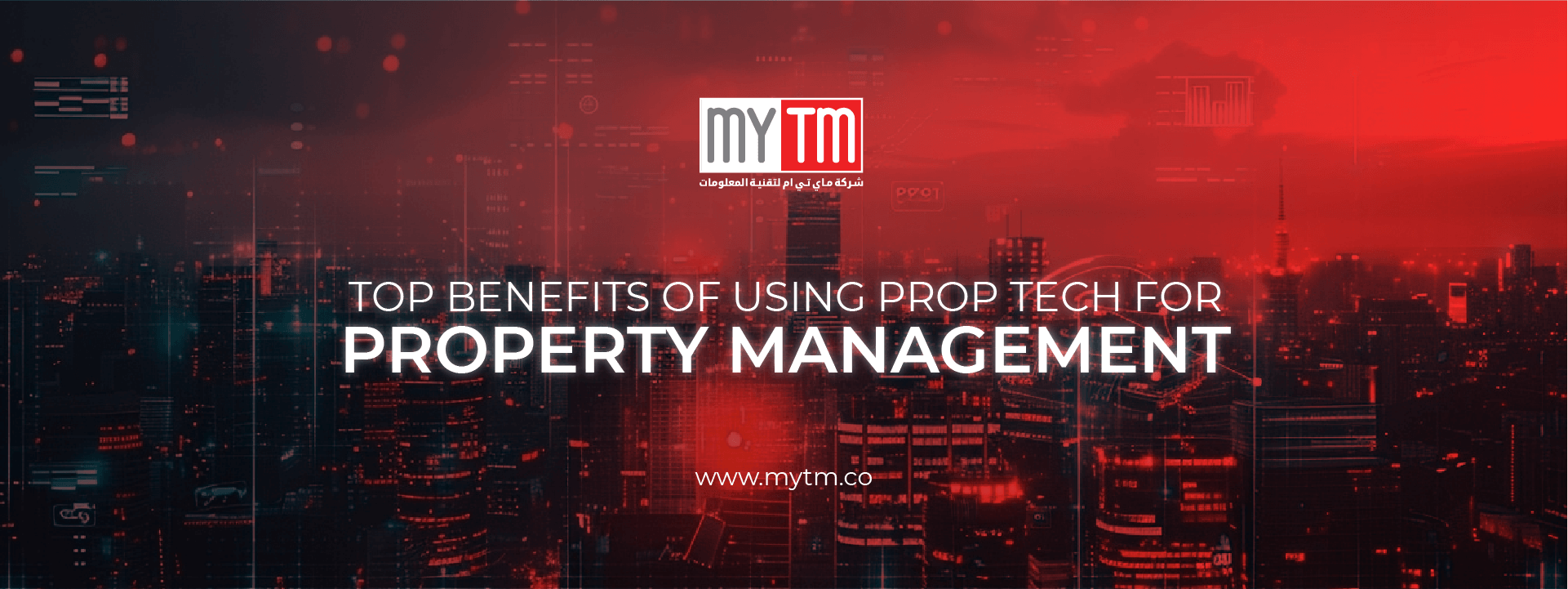Top Benefits of PropTech in Real Estate Management.

Top Benefits of PropTech in Real Estate Management.
PropTech, or property technology, uses digital tools to transform how properties are managed and maintained. For landlords, property managers, and banks servicing real estate portfolios, these real estate management solutions offer several major benefits.
Prop Tech for Property Management: Key Benefits
-
Automation and Efficiency: PropTech automates routine tasks like rent billing, maintenance requests, and tenant communication. By streamlining workflows, it reduces the time and effort needed to manage buildings. For example, AI-driven chatbots and scheduling tools can automatically handle tenant inquiries and service appointments. As explained in a recent MYTM article on prop tech solutions, these systems save time and cut errors by automatically managing tasks like maintenance scheduling and tenant outreach.
-
Cost Savings and Productivity: One of the benefits of prop tech is reduced operating costs. Automating administrative work brings tangible savings. PropTech reduces manual paperwork and staffing needs by letting software handle routine operations. It also helps prevent costly issues: predictive maintenance (e.g. IoT sensors alerting to plumbing or HVAC faults) fixes problems before they become expensive. Together, these advantages improve ROI and let teams focus on higher-value activities.
-
Data-Driven Decisions: Modern PropTech platforms include real-time analytics and reporting. Managers can track vacancies, rental rates, and market trends on dashboards, then adjust pricing and strategy accordingly. This insight helps maximize returns and avoid risks. For investors or lenders, the data also improves risk management by identifying under- or over-performing assets early.
-
Enhanced Tenant Experience: Technology improves the customer side too. Tenants benefit from online leasing, mobile apps for payments and maintenance, and even virtual property tours. A smoother, tech-enabled process makes tenants happier and more likely to renew their leases. In a market like Saudi Arabia, where digital adoption is fast, providing a high-quality online experience is a strong advantage for landlords and property managers.
-
Transparency and Security: PropTech often uses secure, traceable records (sometimes backed by blockchain) to boost trust. Smart contracts and immutable logs mean all parties see clear transaction and maintenance histories. This transparency reduces disputes over payments or ownership and makes regulatory compliance simpler. In practice, it means fewer legal headaches and more confidence for tenants, owners, and banks.
-
Scalability and Integration: Cloud-based PropTech solutions grow with your portfolio. A cloud property management system can handle dozens or thousands of units without extra servers. These platforms also integrate with other services – for example, linking rent payments to online payment gateways, banking systems, or accounting software. In effect, property managers and financial institutions get a unified, scalable toolkit that can expand as needed.
Saudi Arabia’s property sector is undergoing a digital transformation. Vision 2030 has fueled a national shift toward real estate innovation. Major initiatives like NEOM and Diriyah are creating demand for advanced PropTech, making the sector ripe for new property tech advantages. The Saudi PropTech Hub and accelerator programs encourage entrepreneurs to build management tools, while the government focus on diversification drives large-scale development.
Fintech and Regulation in KSA
Saudi banks and fintech firms are part of this trend. The Kingdom’s Fintech Strategy aims to triple the number of fintech companies and raise non-cash transactions to 70% by 2025. Regulators like the Saudi Central Bank (SAMA) have launched fintech sandboxes and open-banking frameworks to foster innovation. This supportive ecosystem means banks and fintech companies can easily integrate PropTech with digital payment services.
For example, online rent payment gateways and digital mortgage platforms can link directly with property management systems. Combining PropTech with the country’s digital finance push makes property transactions faster, more transparent, and more secure.
MYTM’s PropTech platform exemplifies these benefits with its intuitive dashboard. The system “simplifies property administration” and offers robust tools to streamline tasks for property owners, landlords, and managers. All operations – from tracking leases and invoices to handling maintenance requests – appear in one interface. By automating billing, communication, and reporting, MYTM’s solution lets stakeholders see key metrics in real time. In a market focused on cashless transactions and efficiency, this comprehensive system is exactly the type of solution that banks and real estate firms need.
Conclusion
As PropTech brings real improvements, adopting these tools is a logical step for property-centric businesses in Saudi Arabia’s rapidly digitalizing economy. Banks, fintech companies and real estate firms can partner with providers like MYTM to gain efficiency, cost savings and data insights. In a market aligned with Vision 2030, these technology solutions are essential for modern property management and help organizations stay competitive.